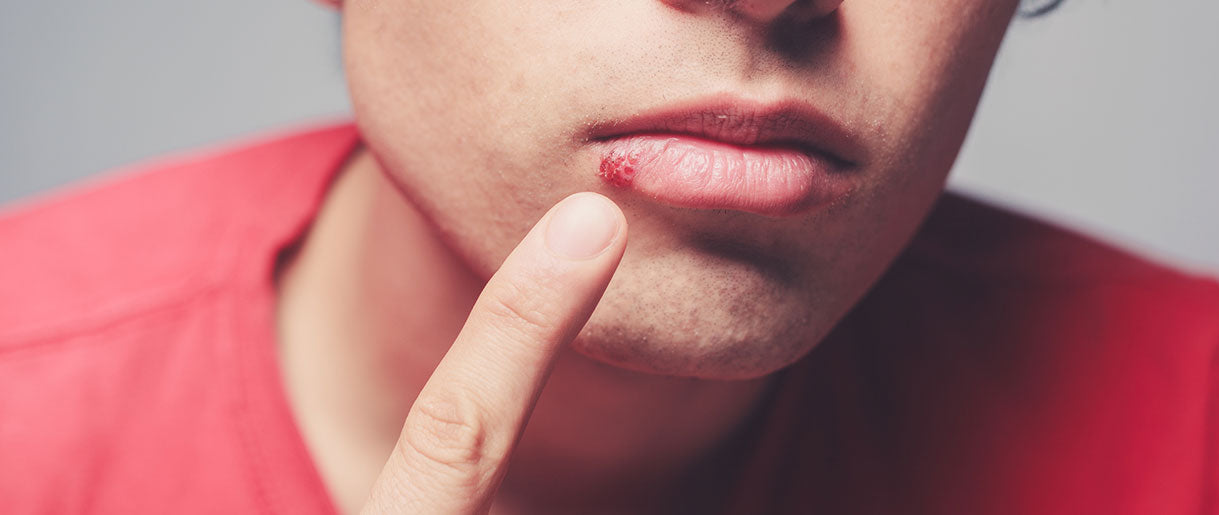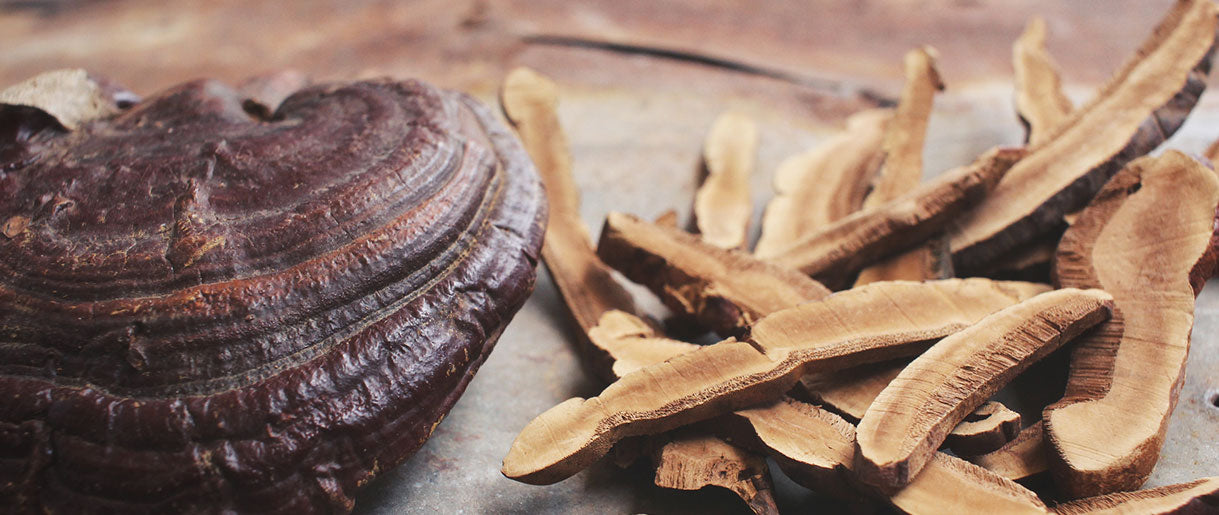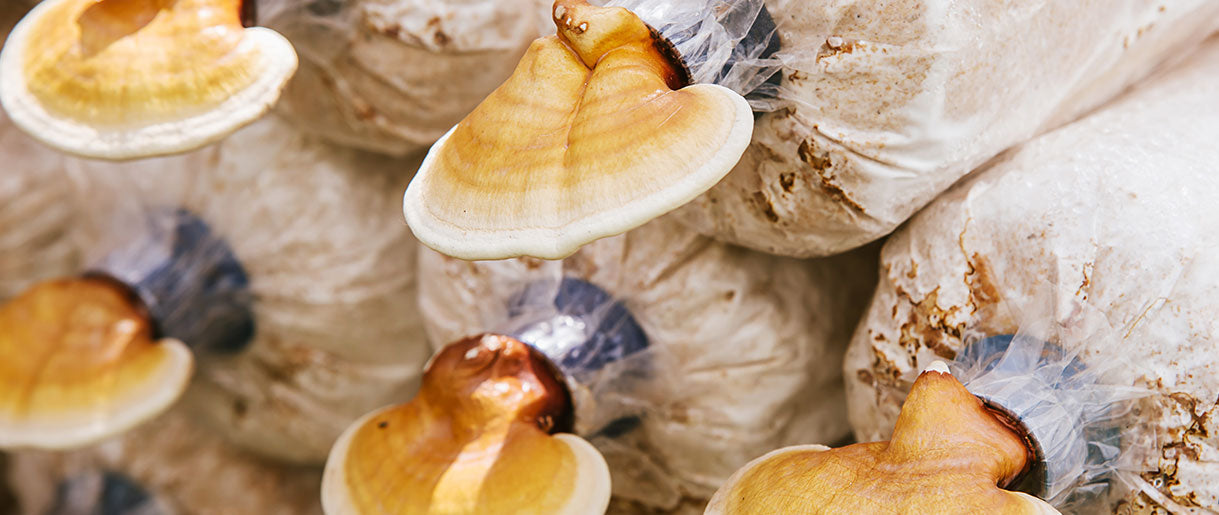Reishi mushroom, also known as Ganoderma lucidum, is an ancient medicinal mushroom used in Traditional Chinese Medicine for centuries. Recent scientific research suggests that it might benefit people with diabetes.
Laboratory studies indicate that Reishi mushroom can have a hypoglycemic effect, helping to lower blood sugar levels. It may also play a role in improving insulin resistance, a critical factor in Type 2 diabetes.
However, while these early results are promising, more extensive human clinical trials are needed to establish the efficacy and safety of Reishi mushroom for diabetes management. Therefore, it's crucial to consult a healthcare provider before starting a regimen with Reishi mushroom, especially for individuals with diabetes, as it may interact with prescribed diabetes medications.
This article will delve deeper into the fascinating world of Reishi mushrooms, their historical uses, nutritional profile, and, specifically, their potential role in diabetes management. We'll review current research, discuss incorporating Reishi mushroom into your diet, and explore possible precautions and side effects. This comprehensive guide aims to shed light on the potential benefits of Reishi mushrooms in the context of diabetes, backed by science and a philosophy of holistic well-being.
The Reishi Mushroom: An Overview

Unveiling the Reishi Mushroom: A Gem Among Medicinal Mushrooms
The Reishi mushroom, known as Ganoderma lucidum, stands out among medicinal mushrooms. It's a giant, dark mushroom with a glossy exterior that thrives in hot and humid areas, especially in Asia.
Ganoderma lucidum has a unique, kidney-shaped cap that distinguishes it from other types of medicinal mushrooms. Reishi has some look-alikes—however, most are safe, non-poisonous, and even medically beneficial. The term 'Reishi' is of Japanese origin, translating to 'divine' or 'spiritual mushroom' due to its historic and reputed health-promoting properties.
Tracing Back to Ancient Times: The Historical Uses of Reishi Mushroom
Reishi mushrooms have a rich history in traditional medicine, spanning over 2,000 years. Ancient practitioners revered these medicinal mushrooms, using Ganoderma lucidum fruit bodies in remedies to balance the body's energies, enhance the immune system, and promote overall well-being. Over the centuries, Ganoderma lucidum has been touted for its potential to improve ailments, from respiratory conditions to liver problems, and even to regulate blood sugar levels.
Exploring the Nutrient-Rich Profile of Ganoderma Lucidum
Reishi mushrooms are packed with various nutrients that contribute to their medicinal properties. They are particularly rich in compounds called Reishi polysaccharides and Ganoderma lucidum polysaccharides, which significantly support the immune system.
Moreover, Ganoderma lucidum contains an array of antioxidants that help combat oxidative stress in the body, a condition linked to chronic illnesses like diabetes. It's also known for its potential to promote the activity of white blood cells, further boosting the immune system.
Reishi mushroom appears to be a potent natural supplement that could play a role in managing blood glucose levels. This potential role has garnered attention in recent years due to the global rise in diabetes cases and the ongoing search for effective, holistic interventions to regulate blood sugar.
The Connection Between Reishi Mushroom and Diabetes

Scientific Studies: Connecting Reishi Mushroom to Diabetes Management
Several scientific studies indicate a potentially significant connection between the Reishi mushroom, a jewel among medicinal mushrooms, and the management of diabetes mellitus.
In several animal studies, notably those involving diabetic rats and mice, the consumption of Ganoderma Lucidum was associated with lowering blood sugar levels. In the studies involving diabetic animals, Reishi mushroom's blood sugar-lowering effect directly impacts plasma glucose levels, highlighting its potential role in diabetes treatment.
One study(1) conducted on diabetic mice showcased that Reishi mushrooms led to a decrease in plasma insulin and blood glucose levels. Additionally, the study found an improvement in weight gain, which is a critical concern in managing diabetes.
In another study(2) on diabetic rats, Ganoderma Lucidum extracts demonstrated hypoglycemic effects by significantly reducing blood sugar levels and fighting insulin resistance. This research also recorded an enhancement in insulin sensitivity, contributing to better blood sugar control.
A study(3) on streptozotocin-induced diabetes in rats, published in an international journal, noted that treatment with Ganoderma Lucidum significantly reduced blood sugar levels and glycosylated hemoglobin. The researchers concluded that the hypoglycemic effect might be due to the mushroom's influence on the pancreas' beta cells, which are responsible for insulin production. This impact on beta cells could explain the improvement in insulin levels observed in the treated diabetic subjects.
Another study focused(4) on polysaccharide fractions derived from Reishi mushrooms. The results showed promising anti-diabetic effects, showcasing the hypoglycemic potential of this medicinal mushroom. The researchers concluded that the hypoglycemic activity might stem from the mushroom's capacity to protect and restore beta cells' function in the pancreas.
Current Consensus and Areas for Further Research
The current consensus within the scientific community recognizes the potential of the Reishi mushroom as a component of natural medicine and herbal medicine for diabetes treatment. Several laboratory studies and clinical trials support the mushroom's potential to lower blood sugar levels, improve insulin resistance, and enhance immune function.
However, despite the promising results, research gaps persist. Many of these studies are conducted on animals, and the need for more human research to corroborate these findings cannot be overstated. It's essential to understand better the precise mechanisms by which the mushroom operates and to study its long-term effects and potential side effects.
Another area of potential research is the exploration of the mushroom's specific compounds, such as Ganoderma polysaccharides, which could lead to the development of more targeted therapeutic interventions for type II diabetes mellitus. The intersection of Ganoderma lucidum and diabetes treatment presents a promising avenue in herbal medicine, potentially harnessing nature's power in combating this widespread chronic illness.
How to Incorporate Reishi Mushroom into Your Diet

Various Forms of Reishi Mushroom: Choosing What Works for You
Depending on personal preferences and lifestyle, there are several ways to incorporate the blood sugar-lowering effects of Reishi mushrooms into your diet. One common way is through capsules or tablets, which are easy to consume and are typically standardized to ensure a consistent dose of the active components. This allows you to improve insulin release and manage diabetes on the go.
Reishi mushroom powder, derived from the fruiting body, can be a perfect choice for those who prefer a more natural approach. The mushroom powder can be mixed into smoothies, drinks, or sprinkled onto food, offering a more flexible way to consume Reishi mushrooms for diabetes.
One of the most traditional ways to consume Reishi is in tea form. Reishi mushroom tea can be made by simmering the dried fruiting body in water for several hours. This method is believed to extract beneficial compounds effectively, allowing you to not only treat diabetes but also improve your overall health.
Recipes and Tips: Making Reishi Mushroom a Part of Your Meals and Drinks
Adding Ganoderma lucidum into your meals and drinks can be an easy and tasty way to reap its potential benefits for chronic diseases like diabetes. Here are a few ideas:
Reishi Mushroom Tea
Simmer dried Reishi mushrooms in water for 2-3 hours, strain the liquid, and enjoy your homemade Reishi tea. You can add a slice of ginger or a dash of honey to enhance the flavor. However, if you are using Reishi to treat diabetes, avoid excessive sugar when preparing your mushroom tea, as this can raise your blood sugar levels.
Reishi Smoothie
Add a spoonful of Ganoderma lucidum powder to your morning smoothie—the earthy flavor and taste of Reishi mushroom pairs well with fruits like bananas and berries.
Reishi Soup
Incorporate Ganoderma lucidum slices into your soups or broths. Remember to simmer it to ensure the extraction of its beneficial compounds.
Guidelines on Dosage and Timing
Considering the recommended Reishi mushroom dosage and timing is essential, especially given its potential blood sugar-lowering effect. Most research studies on diabetic mice suggest a daily dosage of 1-1.5 grams of Reishi mushroom extract. However, human dosage may vary, and it is always best to consult a healthcare professional for personalized advice.
Reishi mushrooms can be consumed at any time of the day. However, some prefer taking it in the morning to capitalize on its potential energy-boosting effects. Others may opt for evening consumption due to its reported calming properties. When consumed at night, Reishi can improve sleep quality in addition to helping with diabetes treatment.
Precautions and Possible Side Effects of Reishi Mushroom

Interactions between Reishi Mushroom and Diabetes Medication
While the ability of Ganoderma lucidum to potentially improve blood sugar levels is beneficial for managing diabetes, it's also important to consider potential interactions with diabetes medication.
Reishi mushroom can potentially lower blood glucose levels, and when taken alongside diabetes medications, it might cause blood sugar to drop dangerously low. Therefore, if you're already on diabetes medication, carefully monitoring blood sugar levels is crucial when introducing Reishi mushroom into your regimen.
The Risks of Overconsumption
While Ganoderma lucidum is generally safe for most people, consuming it excessively may lead to side effects. These can include dry mouth, throat discomfort, upset stomach, and in rare cases, allergic reactions.
Sticking to recommended dosages is crucial to avoid these potential side effects of mushroom supplements. Moreover, people with certain conditions, such as blood disorders, or those preparing for surgery, should avoid Reishi mushroom due to its potential to increase bleeding risk.
Consult with a Healthcare Provider: Your Best Precaution
Before you start incorporating Ganoderma lucidum or any new supplement into your regimen, it is always wise to consult with a healthcare provider. This is especially true if you manage a condition like diabetes or other chronic diseases.
Your healthcare provider can provide personalized advice based on your current health status and medications. They can also help monitor your progress and adjust your regimen to ensure you're safely benefiting from the supplement.
FAQs About Reishi Mushroom for Diabetes
Can Reishi Mushroom Cure Diabetes?
No scientific evidence suggests that Reishi mushroom can "cure" diabetes.While research indicates that Reishi mushroom may help manage blood sugar levels and improve insulin resistance, it should not be considered a standalone cure for diabetes.
It's important to remember that diabetes management involves a multifaceted approach, including dietary changes, regular exercise, medications, and, potentially, supplements like Reishi mushroom. Always consult with a healthcare provider before starting any new supplement regimen.
Can Pregnant Or Breastfeeding Women Use Reishi Mushrooms For Blood Sugar Control?>
There's limited research on the safety and efficacy of using Reishi during pregnancy or breastfeeding, especially concerning blood sugar control. Pregnancy and breastfeeding are sensitive periods, and ensuring that any supplement taken doesn't harm the mother or child is essential.
Given these considerations, pregnant or breastfeeding women must consult a healthcare provider before using Reishi mushroom or any other supplement. A healthcare provider can provide the most up-to-date, personalized advice based on the individual's health status, current scientific research, and safety considerations.
Is It Safe For Children With Diabetes To Take Reishi Mushrooms?
There isn't enough specific research to conclusively determine the safety and efficacy of Ganoderma lucidum use in children, including those with diabetes. While studies have shown the potential benefits of Reishi mushroom for blood sugar control in adults, these findings cannot be automatically extended to children due to differences in physiology, metabolism, and developmental stage.
It's crucial that any supplements given to children, especially those with medical conditions like diabetes, should be administered under the guidance of a healthcare provider. Always consult a pediatrician or a suitable healthcare professional before starting your child on Ganoderma lucidum or any other new supplement regimen. They can provide advice tailored to your child's needs and health status.
Key Takeaways
In exploring the potential benefits of Reishi mushroom for diabetes management, we've traversed through centuries-old traditional practices to modern scientific research. The journey has revealed that the Reishi mushroom, an ancient medicinal mushroom, holds promise in helping to manage blood sugar levels and improve insulin resistance, positioning it as a potential ally in the fight against diabetes.
Yet, it's equally important to approach Reishi mushroom with awareness and caution. Understanding the potential interactions with diabetes medication, possible side effects from overconsumption, and the importance of professional guidance are all critical considerations. Remember that while Ganoderma lucidum shows potential, it doesn't replace conventional diabetes treatments. It should be used as part of a comprehensive treatment plan under the supervision of a healthcare provider.
Your experiences and insights are invaluable in this collective journey of understanding and discovery. If you have personal experiences using Reishi mushroom for diabetes management or any insights into its use, we invite you to share your stories. Your contribution might be the missing piece in someone else's health puzzle.
In the end, the pursuit of health is a personal journey, but it's one that we walk together. As we learn more about the potential of Reishi mushroom and other natural remedies, let's continue to share, learn, and support each other in the pursuit of better health.
References
- Mushrooms of the GenusGanoderma Used to Treat Diabetes and Insulin Resistance, (1)https://www.ncbi.nlm.nih.gov/pmc/articles/PMC6891282/
- Ganoderma lucidum Extract Reduces Insulin Resistance by Enhancing AMPK Activation in High-Fat Diet-Induced Obese Mice, (2)https://www.ncbi.nlm.nih.gov/pmc/articles/PMC7693844/
- Hypoglycemic effect and mechanism of a proteoglycan from ganoderma lucidum on streptozotocin-induced type 2 diabetic rats, (3)https://pubmed.ncbi.nlm.nih.gov/22428467/
- Adjuvant Therapy With Mushroom Polysaccharides for Diabetic Complications, (4)https://www.ncbi.nlm.nih.gov/pmc/articles/PMC7059129/









Let Us Know Your Comments